In the UC Davis Earth and Planetary Sciences department, we believe we can make a difference.
Geoscientists will be crucial in meeting society’s future challenges, be that through the United Nations Sustainable Development Goals, the Paris Agreement to avoid dangerous climate change, or through other important policies to protect the environment and ensure the availability of vital resources for all." -- Geological Society of London
A geoscientist's curiosity about the world — past, present and future; physical and theoretical; terrestrial and interplanetary — can help guide society as it works to make life on earth sustainable and equitable for all.
See how each of the UN Sustainable Development Goals can be tackled with geoscience expertise with Geoscience for the Future.
Here in Earth and Planetary Sciences, our courses will prepare you for a career in the geosciences and provide you with the skills to make a difference in our world.

Climate Change Courses in Earth and Planetary Sciences
These courses all directly address some components of climate change and its present-day impact. The number of weeks listed indicates the amount of time in the course dedicated to this topic.
- GEL 001 – The Earth (3 weeks of climate change material)
- GEL 005 Mass Extinctions – Past and Future (5 weeks)
- GEL 010 – Modern and Ancient Global Environmental Change (10 weeks)
- GEL 016 – The Oceans (10 weeks)
- GEL 017 – Earthquakes and Other Hazards (2.5 weeks)
- GEL 050 – Physical Geology (2 weeks)
- GEL 108 – Paleoclimates (10 weeks)
- GEL 116N – Oceanography
- GEL 131 – Risk: Natural Hazards & Related Phenomena (5 weeks)
- GEL 150A – Physical & Chemical Oceanography
- GEL 150B – Geological Oceanography
- GEL 150C – Biological Oceanography
- See more at UC Davis Courses Related to Sustainability
Prepare for a career in...
Carbon Capture and Storage

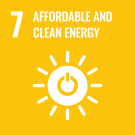

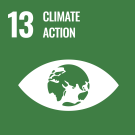
- What is carbon capture and storage?
- Carbon capture and storage refers to technologies used to capture carbon dioxide from various sources, treat it, and store it safely away for the long term, often underground. This career benefits from knowledge of geosciences, chemistry, engineering, and more.
- How can I prepare for a career in carbon capture and storage?
- Geology Major Elective Courses:
GEL 130 - Non-Renewable Natural Resources
GEL 133 - Environmental Geochemistry
GEL 134 - Environmental Geology and Land Use Planning
SSC 100 - Principles of Soil Science
Additional Coursework to Consider:
ESP/ARE 175 - Natural Resource Economics
POL 12B - Climate Change and Politics
POL 171 - The Politics of Energy
SAS 9 - Crisis in the Environment
SAS 25 - Global Climate Change
O*NET Online: Petroleum Engineers. (Petroleum engineers use similar tools and techniques as those working in carbon capture and storage).
Contaminated Groundwater





- What is contaminated groundwater?
- Geoscientists use their skills in chemistry, environmental science, and more to come up with solutions for contaminants in the air, soil, water, and land.
- How can I prepare for a career in contaminated groundwater?
- Geology Major Elective Courses:
GEL 134 - Environmental Geology and Land Use Planning
GEL 156/HYD 146 - Hydrogeology and Contaminant Transport
SSC 100 - Principles of Soil Science
Additional Coursework to Consider:
ESP 174 - Environmental Justice Policy & Practice
HIS 178 - Water in the West
HYD 150 - Water Law
SAS 10 - Water, Power, and Society
O*NET Online: Water Resource Specialists
O*NET Online: Water/Wastewater Engineers
O*NET Online: Data Scientists
Contaminated Land







- What is contaminated land?
- Geoscientists use their skills in chemistry, environmental science, and more to come up with solutions for contaminants in theair, soil, water, and land.
- How can I prepare for a career in contaminated land?
- Geology Major Elective Courses:
GEL 133 - Environmental Geochemistry
GEL 134 - Environmental Geology and Land Use Planning
SSC 100 - Principles of Soil Science
Additional Coursework to Consider:
ESP 174 - Environmental Justice Policy & Practice
ESP/ARE 175 - Natural Resource Economics
Critical Minerals



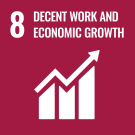
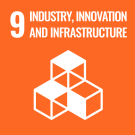



- What are critical minerals?
- Certain minerals and elements are vital in creating the technologies of the future - including sustainable energy - and geoscientists are key to identifying, finding, and managing these resources.
- How can I prepare for a career in critical minerals?
- Geology Major Required Courses:
GEL 60 - Earth Materials
GEL 105 - Igneous Rocks
GEL 110B - Summer Field Volcanology
Geology Major Elective Courses:
GEL 106 - Metamorphic Rocks
GEL 130 - Non-Renewable Natural Resources
GEL 147 - Geology of Ore Deposits
Additional Coursework to Consider:
ESP/ARE 175 - Natural Resource Economics
O*NET Online: Mining and Geological Engineers
Energy Storage






- What is energy storage?
- The unique and interdisciplinary nature of studying geosciences can also help tackle problems related to gas, hydrogen, and compressed air storage.
- How can I prepare for a career in energy storage?
- Geology Major Elective Courses:
GEL 133 - Environmental Geochemistry (covers nuclear waste disposal)
Additional Coursework to Consider:
ESP/ARE 175 - Natural Resource Economics
POL 171 - The Politics of Energy
O*NET Online: Energy Engineers
O*NET Online: Wind Energy Engineers
O*NET Online: Solar Energy Systems Engineers
O*NET Online: Fuel Cell Engineers
Engineering Geology




- What is engineering geology?
- Engineering geologists design solutions to geological problems in a wide variety of areas, such as groundwater, mining,hazards, environmental protection, geothermal, petroleum exploration, and much more.
- How can I prepare for a career in engineering geology?
- Recommended degree path(s): Geology AB or BS
Geology Major Elective Courses:
ECI 171/171L - Introduction to Geotechnical Engineering
GEL 101 - Structural Geology
GEL 134 - Environmental Geology and Land Use Planning
SSC 100 - Principles of Soil Science
BLS Occupational Outlook Handbook: Civil Engineers
O*NET Online: Civil Engineers
BLS Occupational Outlook Handbook: Environmental Engineers
O*NET Online: Environmental Engineers
BLS Occupational Outlook Handbook: Mining and Geological Engineers
O*NET Online: Mining and Geological Engineers
BLS Occupational Outlook Handbook: Petroleum Engineers
O*NET Online: Data Scientists
Environmental and Landscape Protection




- What is environmental and landscape protection?
- Geoscientists use their knowledge of environmental science, chemistry, soils, and more to help protect the environment.
- How can I prepare for a career in environmental and landscape protection?
- Recommended degree path(s): Geology BS
Geology Major Elective Courses:
GEL 134 - Environmental Geology and Land Use Planning
GEL 136 - Ecogeomorphology of Rivers and Streams
ESP 152 - Coastal Oceanography
SSC 100 - Principles of Soil Science
Additional Coursework to Consider
ESP 174 - Environmental Justice Policy and Practice
ESP/ARE 175 - Natural Resource EconomicsHIS 178 - Water in the West
HYD 150 - Water Law
POL 12B - Climate Change and Politics
POL 107 - Environmental Politics & Administration
SAS 9 - Crisis in the Environment
SAS 10 - Water, Power, Society
SAS 25 - Global Climate Change
BLS Occupational Outlook Handbook: Environmental Scientists and Specialists
O*NET Online: Environmental Scientists and Specialists
O*NET Online: Natural Sciences Managers
O*NET Online: Conservation Scientists
O*NET Online: Environmental Restoration Planners
O*NET Online: Fire-Prevention and Protection Engineers
O*NET Online: Environmental Economists
Erosion Management



- What is erosion management?
- Erosion management is important for protecting soil, lands, agriculture, and the people relying on the land around them.
- How can I prepare for a career in erosion management?
- Recommended degree path(s): Geology BS
Geology Major Elective Courses:
GEL 134 - Environmental Geology and Land Use Planning
GEL 140 - Geomorphology
ESP 152 - Coastal Oceanography
SSC 100 - Principles of Soil Science
Additional Coursework to Consider:
ESP/ARE 175 - Natural Resource Economics
O*NET Online: Conservation Scientists
O*NET Online: Soil and Plant Scientists
Environmental Geochemistry







- What is environmental geochemistry?
- Geochemists can use their chemistry backgrounds to help study and protect the environment.
- How can I prepare for a career in environmental geochemistry?
- Geology Major Elective Courses:
GEL 55 - Introduction to Geochemistry
Geology Major Elective Courses:
GEL 133 - Environmental Geochemistry
CHE 100 - Environmental Water Chemistry
SSC 100 - Principles of Soil Science
O*NET Online: Chemical Engineers
O*NET Online: Chemists
Geohazard Mitigation






- What is geohazard mitigation?
- Geological hazards like earthquakes, tsunamis, and volcanoes are present around the world, and may develop quickly or overlong periods of time. Geoscientists help identify hazards and protect against their harmful effects.
- How can I prepare for a career in geohazard mitigation?
- Recommended degree path(s): Geology BS
Geology Major Elective Courses:
GEL 131 - Risk: Natural Hazards & Related Phenomena
GEL 133 - Environmental Geochemistry
GEL 136 - Ecogeomorphology of Rivers & Streams
GEL 134 - Environmental Geology and Land Use Planning
GEL 138 - Volcanology
Additional Coursework to Consider:
ECI 175 - Geotechnical Earthquake Engineering
ESP 174 - Environmental Justice Policy and Practice
GEL 17 - Earthquakes and Other Hazards
POL 12B - Climate Change and Politics
SAS 9 - Crisis in the Environment
SAS 25 - Global Climate Change
O*NET Online: Emergency Management Directors
BLS Occupational Outlook Handbook: Geoscientists
O*NET Online: Geoscientists
Geological Disposal of Radioactive Waste



- What is the geological disposal of radioactive waste?
- Geoscientists help come up with safe and effective ways to dispose of the waste created during nuclear power projects.
- How can I prepare for a career in geological disposal of radioactive waste?
- Geology Major Elective Courses:
GEL 133 - Environmental Geochemistry
SSC 100 - Principles of Soil Science
Additional Coursework to Consider:
ESP/ARE 175 - Natural Resource Economics
Geomorphology



- What is geomorphology?
- Geomorphology is the study of the physical shapes of the earth's surface and how they are formed.
- How can I prepare for a career in geomorphology?
- Recommended degree path(s): Geology BS
Geology Major Elective Courses:
GEL 136 - Ecogeomorphology of Rivers & Streams
GEL 140 - Introduction to Process Geomorphology
SSC 100 - Principles of Soil Science
Additional Coursework to Consider:
GEL 35 - Rivers
HYD 150 - Water Law
O*NET Online: Geodetic Surveyors
Geophysics



- What is geophysics?
- Geophysicists gather data and develop computer models to image the subsurface. These data help to inform decision-makingrelated to clean water, mineral and hydrocarbon resources, environmental remediation, and building sustainable cities andcommunities.
- How can I prepare for a career in geophysics?
- Recommended degree path(s): Geology AB or BS
Geology Major Elective Courses:
GEL 131 - Risk: Natural Hazards & Related Phenomena
GEL 160 - Geological Data Analysis
GEL 161 - Geophysical Field Methods
GEL 162 - Geophysics of the Solid Earth
GEL 163 - Planetary Geology & Geophysics
EPS 164 - Seismology
Additional Coursework to Consider:
GEL 56 - Introduction to Geophysics
BLS Occupational Outlook Handbook: Physicists and Astronomers
O*NET Online: Physicists
O*NET Online: Data Scientists
Geoscience Research
- What is geoscience research?
- Researchers are critical for providing backing to policies and practices that can protect the earth. All Sustainable Development Goals are met with this career field!
- How can I prepare for a career in geoscience research?
- Additional Coursework to Consider:
UWP 49 - Writing Research Papers
UWP 104E - Writing in the Professions: Science
BLS Occupational Outlook Handbook: Geoscientists
O*NET Online: Geoscientists
O*NET Online: Data Scientists
Geothermal Energy







- What is geothermal energy?
- Geothermal energy comes from heat from the earth, providing a renewable source of energy.
- How can I prepare for a career in geothermal energy?
- Geology Major Elective Courses:
GEL 149 - Geothermal Systems
Additional Coursework to Consider:
ESP/ARE 175 - Natural Resource Economics
POL 12B - Climate Change & Politics
POL 171 - The Politics of Energy
SAS 9 - Crisis in the Environment
SAS 25 - Global Climate Change
GIS and Remote Sensing





- What is GIS and remote sensing?
- Geographic Information Systems, or GIS, is a computer program that creates and analyzes geographic data. Remote sensing is the act of measuring or collecting data from a distance. Both these tools are valuable in many geoscience applications.
- How can I prepare for a career in GIS and remote sensing?
- Recommended degree path(s): Geology BS, GIS minor
Geology Major Elective Courses:
ABT/LDA 150 - Introduction to Geographic Information Systems
ESM 186 - Environmental Remote Sensing
GEL 101 & 101L - Structural Geology and Lab
GEL 134 - Environmental Geology and Land Use Planning
GEL 160 - Geological Data Analysis
Additional Coursework to Consider:
ABT 60 - Introduction to Unmanned Aerial Systems
ABT 182 - Environmental Analysis using GIS
ECI 16 - Spatial Data Analysis - teaches CAD and GIS
SAS 18 - GIS and Society
O*NET Online: Cartographers and Photogrammetrists
O*NET Online: Geographers
O*NET Online: Remote Sensing Scientists and Technologists
O*NET Online: Remote Sensing Technicians
Glaciology




- What is glaciology?
- Glaciologists play an important role in studying and protecting glaciers and ice masses.
- How can I prepare for a career in glaciology?
- Geology Major Elective Courses:
GEL 140 - Introduction to Process Geomorphology
SSC 100 - Principles of Soil Science
Additional Coursework to Consider:
HYD 150 - Water Law
BLS Occupational Outlook Handbook: Geoscientists
O*NET Online: Geoscientists
BLS Occupational Outlook Handbook: Atmospheric Scientists, Including Meteorologists
O*NET Online: Atmospheric and Space Scientists
O*NET Online: Climate Change Policy Analysts
Hydrocarbons





- What are hydrocarbons?
- Hydrocarbons are a component of oil, natural gas, and coal.
- How can I prepare for a career in hydrocarbons?
- Geology Major Elective Courses:
GEL 130 - Non-Renewable Natural Resources
BLS Occupational Outlook Handbook: Petroleum Engineers
O*NET Online: Petroleum Engineers
BLS Occupational Outlook Handbook: Geoscientists
O*NET Online: Geoscientists
O*NET Online: Geological Technicians
Hydrogeology






- What is hydrogeology?
- Hydrogeology is the study of the interactions of water and the earth - through groundwater, aquifers, and surface water.
- How can I prepare for a career in hydrogeology?
- Geology Major Elective Courses:
GEL 134 - Environmental Geology and Land Use Planning
GEL 156 / HYD 146 - Hydrogeology and Contaminant Transport
ESM 100 - Principles of Hydrologic Sciences
HYD 144 - Groundwater Hydrology
Additional Coursework to Consider:
HYD 150 - Water Law
BLS Occupational Outlook Handbook: Hydrologists
O*NET Online: Hydrologists
O*NET Online: Water/Wastewater Engineers
O*NET Online: Water Resource Specialists
Hydropower







- What is hydropower?
- Hydropower refers to harnessing the power of water to create renewable energy.
- How can I prepare for a career in hydropower?
- Geology Major Elective Courses:
GEL 130 - Non-Renewable Natural Resources
Additional Coursework to Consider:
ESP/ARE 175 - Natural Resource Economics
HIS 178 - Water in the West
HYD 150 - Water Law
POL 171 - The Politics of Energy
SAS 10 - Water, Power, Society
O*NET Online: Hydroelectric Production Managers
Mining and Mineral Resources







- What is mining and mineral resources?
- Many of the materials needed to power our world come from the rocks around us, and geologists are critical for coming upwith ways to obtain these minerals.
- How can I prepare for a career in mining and mineral resources?
- Geology Major Required Courses:
GEL 60 - Earth Materials
Geology Major Elective Courses:
GEL 147 - Geology of Ore Deposits
SSC 100 - Principles of Soil Science
Additional Coursework to Consider:
ESP/ARE 175 - Natural Resource Economics
BLS Occupational Outlook Handbook: Mining and Geological Engineers
O*NET Online: Mining and Geological Engineers
O*NET Online: Geological Technicians
Museum Curation







- What is museum curation?
- Museums may hold collections having to do with earth history, minerals, human interactions with the world, and much more. The management and stewardship of these collections is essential to keep these materials organized and accessible so they can be used effectively to inform research, teaching, and policy-making.
- How can I prepare for a career in museum curation?
- Recommended Degree Path(s): Geology AB or BS, Minor in Museum Studies
Geology Major Required Courses:
GEL 60 - Earth Materials
GEL 107 - Paleobiology
Geology Major Elective Courses:
GEL 150C - Biological Oceanography (this class visits the California Academy of Sciences)
BLS Occupational Outlook Handbook: Archivists, Curators, and Museum Workers
O*NET Online: Curators
O*NET Online: Museum Technicians and Conservators
Non-Governmental Organizations







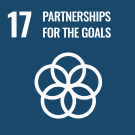
- What are non-governmental organizations?
- An NGO is an organization that operates towards a specific cause, outside of government work. They typically will have amission and work towards fulfilling that mission. Many NGOs exist to work on scientific problems, and would benefit from theskills and solutions a geoscientist can bring to these global problems.
- How can I prepare for a career in non-governmental organizations?
- Recommended Degree Path(s): Geology AB
Geology Major Elective Courses:
GEL 131 - Risk: Natural Hazards & Related Phenomena
GEL 150C - Biological Oceanography (discusses NGO careers and has guest speakers from NGOs)
Additional Coursework to Consider:
ESP 174 - Environmental Justice Policy and Practice
HYD 150 - Water Law
NAS 161 - California Indian Environmental Policy I
NAS 162 - California Indian Environmental Policy II
BLS Occupational Outlook Handbook: Geoscientists
O*NET Online: Geoscientists
Nuclear Energy







- What is nuclear energy?
- Scientists can create power through nuclear fission, nuclear decay, and nuclear fusion reactions.
- How can I prepare for a career in nuclear energy?
- Geology Major Elective Courses:
GEL 146 - Radiogenic Isotope Geochemistry & Cosmochemistry
Additional Coursework to Consider:
ESP/ARE 175 - Natural Resource Economics
POL 171 - The Politics of Energy
BLS Occupational Outlook Handbook: Nuclear Engineers
O*NET Online: Nuclear Engineers
Oceanography


- What is oceanography?
- Oceans make up the majority of the earth's surface. Oceanographers study the ocean's biology, chemistry, geology, physicsand more in order to observe and protect the world's water and the communities that rely on the oceans.
- How can I prepare for a career in oceanography?
- Recommended degree path(s): Marine and Coastal Science BS, Geology BS, Oceanography minor
Geology Major Elective Courses:
GEL 116N - Oceanography
GEL 150A - Physical & Chemical Oceanography
GEL 150B - Geological Oceanography
GEL 150C - Biological Oceanography
ESP 152 - Coastal Oceanography
Additional Coursework to Consider:
HIS 178 - Water in the West
HYD 150 - Water Law
SAS 10 - Water, Power, Society
BLS Occupational Outlook Handbook: Geoscientists
O*NET Online: Geoscientists
O*NET Online: Atmospheric and Space Scientists
Paleoclimatology



- What is paleoclimatology?
- Understanding the natural variability of climates of the ancient world provides context for our current human-influenced climate system. Field, geochemical, and modeling studies of past climates establishes a framework for peering into the near-future of Earth’s ongoing climate crisis.
- How can I prepare for a career in paleoclimatology?
- Geology Major Required Courses:
GEL 108 - Paleoclimates
Additional Coursework to Consider:
GEL 10 - Modern and Ancient Global Environmental Change
HYD 150 - Water Law
POL 12B - Climate Change & Politics
SAS 9 - Crisis in the Environment
SAS 25 - Global Climate Change
BLS Occupational Outlook Handbook: Atmospheric Scientists, Including Meteorologists
O*NET Online: Atmospheric and Space Scientists
O*NET Online: Climate Change Policy Analysts
Paleontology


- What is paleontology?
- Paleontologists study the history and evolution of life, as revealed by the fossil record. Understanding life in the past, and howit is both similar to and different from life today, can educate us about organismal responses to environmental change andinform us in policy-making to better adapt to change in the future.
- How can I prepare for a career in paleontology?
- Recommended degree path(s): Geology AB or BS
Geology Major Elective Courses:
GEL 141 - Evolutionary History of Vertebrates
GEL 144 - Historical Ecology
Additional Coursework to Consider:
ANS 119 - Invertebrate Aquaculture
ANT 151 - Primate Evolution
ANT 152 - Human Evolution
BIS 2ABC - Introduction to Biology
BIS 101 - Genes & Gene Expression
BIS 122 - Population Biology & Ecology
ENT 100 - General Entomology
EVE 100 - Introduction to Evolution
EVE 101 - Introduction to Ecology
GEL 3 - History of Life
GEL 4 - Evolution
GEL 5 - Mass Extinctions
GEL 12 - Dinosaurs
GEL 53 - Introduction to Geobiology
MAT 107, 124, 135 - Probability in BioSci; Mathematical Biology
MIC 101 - Introductory Microbiology
NPB 118 - Comparative Biomechanics
PLB 108 - Systematics & Evolution of Angiosperms
STA 100 - Applied Statistics for Biol Sci
UWP 102B - Writing in the Disciplines: Biology
BLS Occupational Outlook Handbook: Geoscientists
O*NET Online: Geoscientists
Planetary Geology

- What is planetary geology?
- Planetary scientists study the geology, processes, and materials of objects in the universe, often comparing that knowledge togeological processes on Earth.
- How can I prepare for a career in planetary geology?
- Recommended Degree Path(s): Geology BS, MS, or PhD.
Geology Major Elective Courses:
GEL 146 - Radiogenic Isotope Geochemistry & Cosmochemistry
GEL 162 - Geophysics of the Solid Earth
GEL 163 - Planetary Geology and Geophysics
ESM 186 - Environmental Remote Sensing
Additional Coursework to Consider:
GEL 28 - Astrobiology
GEL 36 - The Solar System
Various Computer Science classes
BLS Occupational Outlook Handbook: Physicists and Astronomers
O*NET Online: Astronomers
O*NET Online: Atmospheric and Space Scientists
BLS Occupational Outlook Handbook: Geoscientists
O*NET Online: Geoscientists
O*NET Online: Data Scientists
Pre-Law
- What is pre-law?
- You can have any major and go to law school. Studying earth sciences provides a holistic background to go into environmental law, energy law, water law, and other ways to legally protect the earth and its resources. Visit Pre-Graduate and Law Advising to learn about paths towards a career in law.
- How can I prepare for a career in pre-law?
- Recommended Degree Path(s): Geology AB or BS
Geology Major Elective Courses:
Any
Additional Coursework to Consider:
ESP 174 - Environmental Justice Policy and Practice
HYD 150 - Water Law
POL 107 - Environmental Politics and Administration
POL 171 - The Politics of Energy
STS 11 - Science on Trial
UWP 104E - Writing in the Professions: Science
BLS Occupational Outlook Handbook: Legal Occupations
O*NET Online: Legal
Pre-Medicine and Healthcare
- What is pre-medicine and healthcare?
- Studying the world around us offers a unique perspective on holistic health for the future. Visit Health Professions Advising tolearn paths towards many different healthcare professions.
- How can I prepare for a career in pre-medicine and healthcare?
- Geology Major Elective Courses:
GEL 107 - Paleobiology
BLS Occupational Outlook Handbook: Healthcare Occupations
O*NET Online: Healthcare Practitioners and Technical
Renewable Energy





- What is renewable energy?
- Geoscientists are critical in researching and understanding ways to capture renewable energy from the earth. Renewableenergy can include solar, geothermal, wind, biomass, hydropwer, and more emerging technologies.
- How can I prepare for a career in renewable energy?
- Geology Major Elective Courses:
GEL 130 - Non-Renewable Natural Resources
GEL 131 - Risk: Natural Hazards & Related Phenomena
Additional Coursework to Consider:
ESP 174 - Environmental Justice Policy and Practice
ESP/ARE 175 - Natural Resource Economics
HIS 178 - Water in the WestHYD 150 - Water Law
POL 12B - Climate Change and Politics
POL 171 - The Politics of Energy
SAS 9 - Crisis in the Environment
SAS 10 - Water, Power, and Society
SAS 25 - Global Climate Change
O*NET Online: Energy Engineers
O*NET Online: Wind Energy Engineers
O*NET Online: Solar Energy Systems Engineers
O*NET Online: Fuel Cell Engineers
Science Outreach and Communication






- What is science outreach and communication?
- Geoscientists who have the ability to write well and speak to a variety of interest groups (e.g., K-12 students, policy-makers, the general public) provide an important service toward furthering the public understanding of what geoscientists do and how theEarth works.
- How can I prepare for a career in science outreach and communication?
- Recommended Degree Path(s): Geology AB or BS
Geology Major Elective Courses:
GEL 116N - Oceanography (includes work on science communication)
GEL 150C - Biological Oceanography (includes practice at giving short, public talks)
Additional Coursework to Consider:
ESP 174 - Environmental Justice Policy and Practice
UWP 104E - Writing in the Professions: Science
UWP 111C - Science Journalism
O*NET Online: Public Relations Managers
BLS Occupational Outlook Handbook: Public Relations Specialists
O*NET Online: Public Relations Specialists
BLS Occupational Outlook Handbook: News Analysts, Reporters, and Journalists
BLS Occupational Outlook Handbook: Technical Writers
O*NET Online: Park Naturalists
Science Policy







- What is science policy?
- Science policy-makers are informed about the science of the earth, atmosphere, biosphere, hydrosphere, and cryosphere and are thus able to navigate the process of legislation and law-making from a position of knowledge and experience.
- How can I prepare for a career in science policy?
- Recommended degree path(s): Geology AB or BS
Geology Major Elective Courses:
GEL/ESP 116N - Oceanography
GEL 131 - Risk: Natural Hazards & Related Phenomena
GEL/ESP 150C - Biological Oceanography
Additional Coursework to Consider:
Classes in the Environmental Science and Policy department
ESP 174 - Environmental Justice Policy and Practice
ESP/ARE 175 - Natural Resource Economics
GEL 2 - Earth System Science
HIS 178 - Water in the West
HYD 150 - Water Law
NAS 161 - California Indian Environmental Policy I
NAS 162 - California Indian Environmental Policy II
POL 107 - Environmental Politics and Administration
POL 171 - The Politics of Energy
SAS 10 - Water, Power, Society
UWP 104E - Writing in the Sciences
Policy internships with professional organizations like AGI, various government agencies and NGOs, and private companies.
UC Center Sacramento internships and classes
UC Center Washington internships and classes
O*NET Online: Climate Change Policy Analysts
O*NET Online: Environmental Economists
O*NET Online: Political Scientists
Seismology


- What is seismology?
- Seismology is the study of earthquakes. Seismologists study the formation and factors leading to earthquakes, and may help contribute to recovery from earthquakes.
- How can I prepare for a career in seismology?
- Geology Major Elective Courses:
EPS 164 - Seismology (coming soon)
BLS Occupational Outlook Handbook: Seismologists
BLS Occupational Outlook Handbook: Geoscientists
O*NET Online: Geoscientists
Teaching



- What is teaching?
- Schools from across the educational spectrum are increasingly in need of science educators, especially those who understandthe overall earth system and how our planet's various components work together.
- How can I prepare for a career in teaching?
- Recommended degree path(s): Geology BA or BS (K-12), Earth and Planetary Sciences MS (community college), Earth andPlanetary Sciences PhD (universities), Education minor (teaching credential prerequisites)
Geology Major Elective Courses:
GEL 181 - Teaching in Science & Mathematics (Middle School)
GEL 183 - Teaching High School Mathematics & Science
GEL 186 - Facilitating Learning in STEM Classes
Additional Coursework to Consider:
GEL 081 - Learning in Sciences & Mathematics (K-6)
EDU 110 - Educational Psychology
EDU 142 - Introduction to Environmental Education
BLS Occupational Outlook Handbook: Education, Training, and Library Occupations
O*NET Online: Environmental Science Teachers, Postsecondary
O*NET Online: Geography Teachers, Postsecondary
O*NET Online: Physics Teachers, Postsecondary
Volcanology

- What is volcanology?
- Volcanology is the study of volcanoes, including their formation and activity.
- How can I prepare for a career in volcanology?
- Recommended degree path(s): Geology BS
Geology Major Elective Courses:
GEL 138 - Introductory Volcanology - includes field work
GEL 110B - Summer Field Geology: Volcanology
Additional Coursework to Consider:
GEL 32 - Volcanoes
Study Abroad in Sicily - "Field Studies in Volcanology"
BLS Occupational Outlook Handbook: Geoscientists
O*NET Online: Geoscientists

